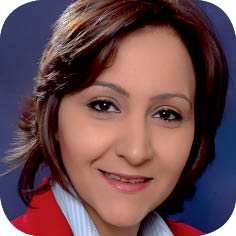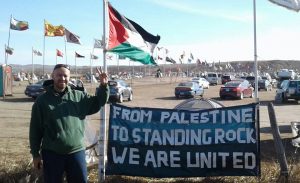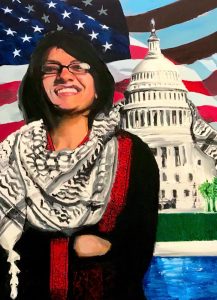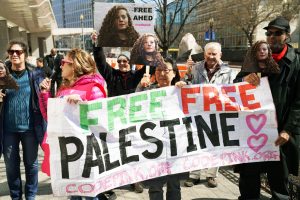Communications, public diplomacy, and narrative. These are the new trappings of modern-day politics on all levels (domestic, regional, and international). Traditional tools and media are no longer sufficient to engage in the global conversation. Today, individuals can potentially hold more weight and influence than traditionally influential public-opinion shapers and makers such as news organizations and prominent politicians. As the public sphere of knowledge and connectivity expands, our realities become more connected. Social media platforms have empowered ordinary people and civil society to connect on issues that transcend borders, languages, and politics. Equally, they have provided capital and special-interest groups with opportunities to inject information, propaganda, and even falsehoods into a largely unregulated public sphere. This presents a new set of challenges, especially to those advocating narratives that do not have financial backing, which can only be overcome by forming alliances that transcend physical and national boundaries.
The Palestinian people constitute a young, vibrant, and creative nation whose contributions to humanity are impressive, especially in light of our 100-year struggle against dispossession and colonialism. Our narrative is compelling. Yet to observers worldwide, the words “Palestine” and “Palestinian” almost exclusively evoke images of war, conflict, anger, and fear. Palestinians are also usually depicted in a simplistic, generic, and distorted manner. We are often shown to be poor, angry, conservative Muslims when the social, demographic, and religious composition of Palestinian society is far more complex and varied. Even in generally balanced or pro-Palestinian media outlets, Palestine’s story is very often trapped in the most recent developments of the conflict and devoid of any context that includes the Palestinian narrative.
Communicating on behalf of an entire people is simply overwhelming. This is especially true in relation to the Palestinian people, whose narrative has been purposely and systematically omitted from international debate and cynically distorted for decades. It requires a bold and strategic approach that can unify the Palestinian message and change the conversation about Palestine, the Palestinian people, and the conflict in general.
Regrettably, the official Palestinian approach to promoting our narrative is predominantly traditional and one-dimensional, lacking a clear and focused communications strategy or the ability to tap into Palestine’s extensive and competent human resources. A quick examination of official Palestinian voices exposes this lack of vision. While the majority of the Palestinian population is under 35, official spokespersons in Palestine are predominantly men who are well above 35 years of age, most of whom speak only Arabic. There are plenty of competent multilingual Palestinian professionals who can effectively communicate the Palestinian narrative to other cultures and audiences worldwide. However, the archaic and ineffective official approach to communications consistently underestimates this strategic battleground for Palestine and fails to recruit these important assets.
The ongoing political division in Palestinian politics has also contributed to the lack of clarity in our messaging, providing international audiences with often conflicting and even contradictory narratives. This is most evident in the use of the term “the people of Gaza,” a term that emerged as a consequence of the Palestinian division. Beyond semantics, this coined term has undermined the collective Palestinian narrative focusing on national liberation and has polarized allies and foes alike along the lines of division.
The devastating impact of this lack of clarity on internal Palestinian relations and Palestinian outreach efforts cannot be overstated. For example, when tens of thousands of Palestinian refugees in Al-Yarmouk Refugee Camp were starving due to the Syrian regime’s hermetic siege of the camp, there was no Palestinian narrative to explain the extent of the tragic situation in Al-Yarmouk. Conflicting Palestinian positions on the issue resulted in contradictory messages, which in turn resulted in the effective abandonment of the starving and dying refugees. Instead of having Palestinians advocating for their own people in distress, international organizations such as UNRWA had to assume this awesome responsibility. Palestinians became effectively voiceless.
Nonetheless, Palestinian shortcomings cannot be solely blamed for the absence of the Palestinian narrative. Particularly in the West, mainstream media coverage of the Palestinian story has declined significantly over the past ten years, with attention being focused on other conflicts of regional and international dimensions in the region, including the conflicts in Yemen and Syria. Today, media interest is limited to stories that involve violence and death, reasserting the old slogan “if it bleeds, it leads.” This deprives audiences worldwide of the context and background that are required to understand so-called escalations on the ground and “flare-ups in violence” as they are called.
Other media outlets look for feel-good stories about artificial realities of “peace” and “coexistence” between Israelis and Palestinians. These stories are usually sterilized from reality to the point of bordering on fiction. They purposefully and diligently omit any mention of the Israeli occupation, describing Israeli settlements as “neighborhoods” or “towns,” while misleading their readers and viewers into believing that the only thing standing between mainstreaming this alternative reality and the real world are “extremists” and “rejectionists” who are, needless to say, almost always Palestinian in this case.
This system of omission and distortion is not new. For nearly an entire century, the Palestinian people has been denied the right to tell its story. Nearly two decades before the Nakba in 1948, Palestinian representatives were denied a seat at the international table while the fate of their nation was decided by colonial powers, including the Zionist Congress. This trend continued and became more pronounced in media coverage over the following decades. According to a recent study that examined the media coverage of the conflict in five major US newspapers since 1967, the very mention of occupation has declined by 85 percent, while the use of the term refugee has declined by 93 percent.* The study also revealed that omission was not limited to those two pillars of the Palestinian narrative, which provide context to readers. It extended to the space allotted for Palestinian voices, where Israeli sources were two and a half times (250 percent) more likely to be quoted in news stories than Palestinian sources. These findings illustrate why in years past, Western public opinion was far more supportive of Israel despite being far less knowledgeable of the facts of the conflict, with some believing that Palestinians occupied Israel!
Interestingly, the findings of this study also reveal why traditional news media are no longer the deciding factor in shaping public opinion. While the bias against the Palestinian narrative is clear in the study, international public opinion, including in the United States and Europe, is shifting. There is increasing support for the Palestinian cause and acceptance of the Palestinian narrative, thanks in no small measure to new and alternative means of communication and activism that can neither be controlled nor silenced by traditional actors.
The Palestinian narrative is gaining ground. It can be heard on the streets of London, New York, Paris, and Dublin, and it has an audience among activists and politicians. In European and other parliaments, the Palestinian narrative has made headway, with local and national parliaments advancing or adopting legislation to boycott the Israeli occupation regime. Even in countries such as Australia, where the current government has adopted a clearly anti-Palestinian position, the Palestinian issue has become an election issue, with the Labor party vowing to recognize Palestine if it wins power. In the United States, the Palestinian narrative is becoming part of the national conversation, despite having been confined to the fringes of politics in the not-so-distant past.
While traditional actors have remained confined to the rules of the old and institutionally biased game, other emerging social and political actors, especially in the United States, have abandoned the “game” all together. These new influencers from all walks of life and various ethnic and religious backgrounds are unapologetic about being pro-Palestinian rights. Equally, young and energetic Palestinian voices from all backgrounds and professions are gaining admiration and a following because their message is clear, unwavering, and principled. They are advocates for Palestinian rights in a wider quest for universal human rights. This is a significant and powerful shift in the Palestinian narrative, its access to a wider sector of international public opinion, and its influence in the global struggle for dignity, equality, and human rights.
The official Palestinian effort to promote our narrative lags behind at great political cost to the noble Palestinian cause, despite sincere efforts by some in the Palestinian leadership to institutionalize public diplomacy and communications. However, we can take comfort in the new opportunities and evolving dynamics, where Palestine and the Palestinian narrative have passionate and effective advocates as well as allies who do not shy away from controversy or traditional backlash.
New platforms and tools have changed the dynamics, not the basics. Communications remains an art that requires far more than linguistic eloquence and impressive vocabulary. It is about owning one’s message, translating it into a vivid and compelling narrative that is convincing in its truth and engaging to the receiving audience. The Palestinian voice is stronger and more compelling than the forces trying to ignore and mute it. It will continue to rise and inspire, in truth and perseverance.
Nour Odeh is a communications consultant who had a long career in journalism before becoming the first woman to serve as government spokesperson in Palestine.
* Usaid Siddiqui and Owais A. Zaheer, 50 Years of Occupation: A Sentiment and N-Gram Analysis of US Mainstream Media Coverage of the Israeli Occupation of Palestine, available at https://static1.squarespace.com/static/558067a3e4b0cb2f81614c38/t/5c391cc4758d46ef9834907f/1547246789711/416_LABS_50_Years_Of_Occupation_Jan+9th.pdf.





